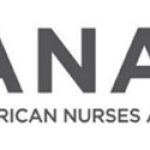Talking About Nurse Staffing Ratios Isn’t Backwards — It’s Basic!
 The recent nurses’ strikeopens in a new tab or window in New York City is indicative of a frequent, foundational, and festering problem in our profession: staffing. While the tentative deals formed between hospitals and unions bring relief from the chaos and fractured relationships that the strike engendered, the threat of disruption lingers. Similar to last-minute congressional action to raise the debt ceiling and keep the government operating, we know the relief is temporary. The emotional consequences will not heal overnight.
The recent nurses’ strikeopens in a new tab or window in New York City is indicative of a frequent, foundational, and festering problem in our profession: staffing. While the tentative deals formed between hospitals and unions bring relief from the chaos and fractured relationships that the strike engendered, the threat of disruption lingers. Similar to last-minute congressional action to raise the debt ceiling and keep the government operating, we know the relief is temporary. The emotional consequences will not heal overnight.
One of us (Katie) spoke to a direct care nurse who lamented the impact of the strike on the relationship she’d worked to build with her manager. Katie also heard from a manager who expressed frustration with unions sowing discord among staff. And while strikes by any group are emotionally fraught, nursing strikes affect the most vulnerable members of our communities: those who require hospital care.
Coincidentally, as the New York City strike was ending, Gallup revealedopens in a new tab or window for the 21st year that according to its polling, nursing is the most trusted and most ethical profession. This juxtaposition illustrates the gap between trust and respect. Nurses can be relied on to do what is right, and yet they are not included in key decisions that affect their work. In fact, nurses are overwhelmingly outnumbered in hospital C-suites. This often leaves some hospital leaders to make decisions with minimal input from the largest group of professionals they employ who comprise the most consistent source of patient care.
Multiple surveys say the same thing: high numbers of nurses are leaving or intend to leave their positions, and staffing is a top reason. A 2022 American Nurses Foundation Pulse on the Nation’s Nurses surveyopens in a new tab or window found that 89% of respondents reported that their organization was experiencing a staffing shortage. Nurses in that survey who indicated an intent to leave their current position noted that insufficient staffing and an inability to provide quality care were two of the top reasons. Similarly, in a survey by the American Association of Critical-Care Nursesopens in a new tab or window, 57% of nurses with intent to leave reported that better staffing would lead them to reconsider.
A recent study by the opens in a new tab or windowWashington Postopens in a new tab or window noted that healthcare professionals feel more meaning but enjoy less happiness in their roles than those working in other industries. Katie’s recent conversation with a new graduate nurse is a good example of this. The new nurse entered nursing after working in three or four other industries, and she said she found that no other profession requires so much from one individual within a limited period of time as does nursing. Although some other careers may require high levels of personal investment, nursing is definitely in the top tier on that scale. Even at the degree to which nursing can be physically and emotionally taxing, we believe that happiness is available to nurses if they have the necessary resources to provide the care their patients deserve.
The recent nurses’ strikeopens in a new tab or window in New York City is indicative of a frequent, foundational, and festering problem in our profession: staffing. While the tentative deals formed between hospitals and unions bring relief from the chaos and fractured relationships that the strike engendered, the threat of disruption lingers. Similar to last-minute congressional action to raise the debt ceiling and keep the government operating, we know the relief is temporary. The emotional consequences will not heal overnight.
One of us (Katie) spoke to a direct care nurse who lamented the impact of the strike on the relationship she’d worked to build with her manager. Katie also heard from a manager who expressed frustration with unions sowing discord among staff. And while strikes by any group are emotionally fraught, nursing strikes affect the most vulnerable members of our communities: those who require hospital care.
Coincidentally, as the New York City strike was ending, Gallup revealedopens in a new tab or window for the 21st year that according to its polling, nursing is the most trusted and most ethical profession. This juxtaposition illustrates the gap between trust and respect. Nurses can be relied on to do what is right, and yet they are not included in key decisions that affect their work. In fact, nurses are overwhelmingly outnumbered in hospital C-suites. This often leaves some hospital leaders to make decisions with minimal input from the largest group of professionals they employ who comprise the most consistent source of patient care.
Multiple surveys say the same thing: high numbers of nurses are leaving or intend to leave their positions, and staffing is a top reason. A 2022 American Nurses Foundation Pulse on the Nation’s Nurses surveyopens in a new tab or window found that 89% of respondents reported that their organization was experiencing a staffing shortage. Nurses in that survey who indicated an intent to leave their current position noted that insufficient staffing and an inability to provide quality care were two of the top reasons. Similarly, in a survey by the American Association of Critical-Care Nursesopens in a new tab or window, 57% of nurses with intent to leave reported that better staffing would lead them to reconsider.
A recent study by the opens in a new tab or windowWashington Postopens in a new tab or window noted that healthcare professionals feel more meaning but enjoy less happiness in their roles than those working in other industries. Katie’s recent conversation with a new graduate nurse is a good example of this. The new nurse entered nursing after working in three or four other industries, and she said she found that no other profession requires so much from one individual within a limited period of time as does nursing. Although some other careers may require high levels of personal investment, nursing is definitely in the top tier on that scale. Even at the degree to which nursing can be physically and emotionally taxing, we believe that happiness is available to nurses if they have the necessary resources to provide the care their patients deserve.
So let’s talk about ratios, shall we?
The question of establishing specific nurse-to-patient ratios is the single most controversial topic in our profession and in healthcare right now. This is so fraught that we have, in the past, avoided using the word “ratios” in the context of staffing. A nursing ratio simply refers to the number of patients one nurse is assigned to care for during the shift.
As consumers in other industries, we pay attention to these numbers. We are mindful of class sizes at our children’s schools (teachers:students), and airplanes do not fly without the proper number of flight attendants (flight attendants:passengers). When we go out to eat, we must wait to be seated even though we see empty tables, due to a lack of wait staff (servers:tables/patrons). And yet, in nursing, we remain stuck in this unsettling place of strikes, walkouts, and attrition.
After hearing so many arguments on this issue, we have settled on one fact. The issue is less about having ratios and more about who is deciding the standard ratio. Who is setting the standard for how many patients each nurse should care for? We agree that institutions should be able to set these “standards” versus the alternative — state and federal mandates — but it should not be determined or driven by finance teams or traditional bookkeeping metrics that are clearly flawed and misrepresentative.
Nurses need to be there when these decisions are made; the Partners for Nurse Staffing Think Tank, for example, notes the essential role of speciality nursing organizationsopens in a new tab or window in setting nurse staffing standards. But until there is an earnest effort to address ratios in a meaningful way with nurses at the decision-making table, nurses will look for bills and laws to resolve the issue.
Talking about nurse staffing ratios in 2023 is not taking a step backwards in time, it’s basic, forward-thinking, and urgent. We can do hard things. Let’s get to work.
- Katie Boston-Leary, PhD, RN, is the director of nursing programs at the American Nurses Association and an adjunct professor at the University of Maryland School of Nursing in Baltimore. Sarah A. Delgado, MSN, RN, is a clinical practice specialist at the American Association of Critical-Care Nurses.
(This story originally appeared in MedPage Today.)




